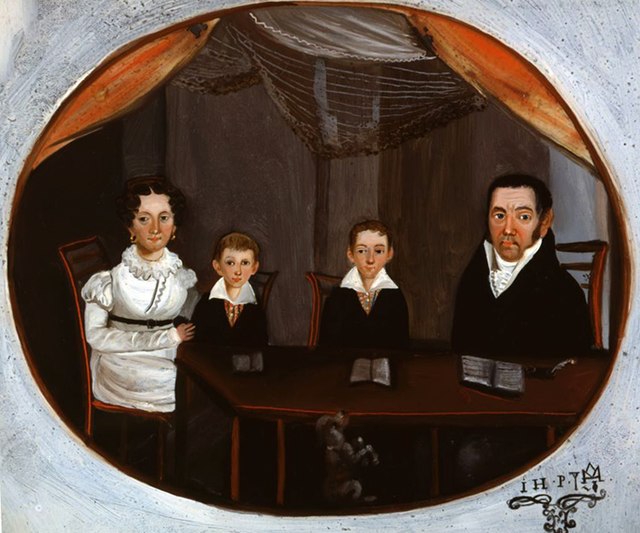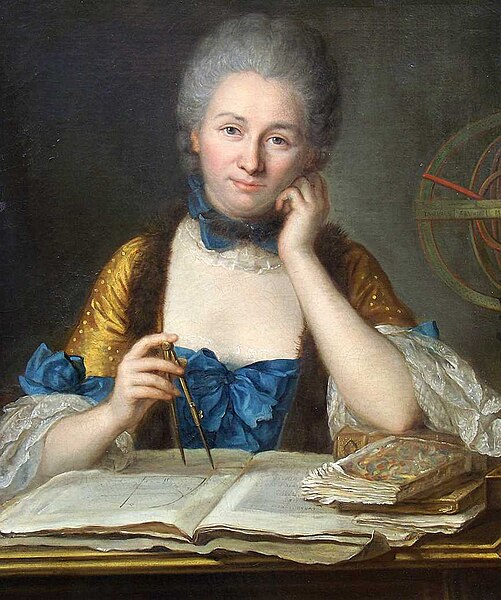Julius Robert von Mayer was a German physician, chemist, and physicist and one of the founders of thermodynamics. He is best known for enunciating in 1841 one of the original statements of the conservation of energy or what is now known as one of the first versions of the first law of thermodynamics, namely that "energy can be neither created nor destroyed". In 1842, Mayer described the vital chemical process now referred to as oxidation as the primary source of energy for any living creature. He also proposed that plants convert light into chemical energy.
Julius von Mayer
Pharmacist family Mayer from Heilbronn ca. 1820/25, the parents and two of the three sons are shown: probably Carl Gustav and Julius Robert.
The law of conservation of energy states that the total energy of an isolated system remains constant; it is said to be conserved over time. In the case of a closed system the principle says that the total amount of energy within the system can only be changed through energy entering or leaving the system. Energy can neither be created nor destroyed; rather, it can only be transformed or transferred from one form to another. For instance, chemical energy is converted to kinetic energy when a stick of dynamite explodes. If one adds up all forms of energy that were released in the explosion, such as the kinetic energy and potential energy of the pieces, as well as heat and sound, one will get the exact decrease of chemical energy in the combustion of the dynamite.
Gottfried Leibniz
Daniel Bernoulli
Emilie du Chatelet
Gaspard-Gustave Coriolis






